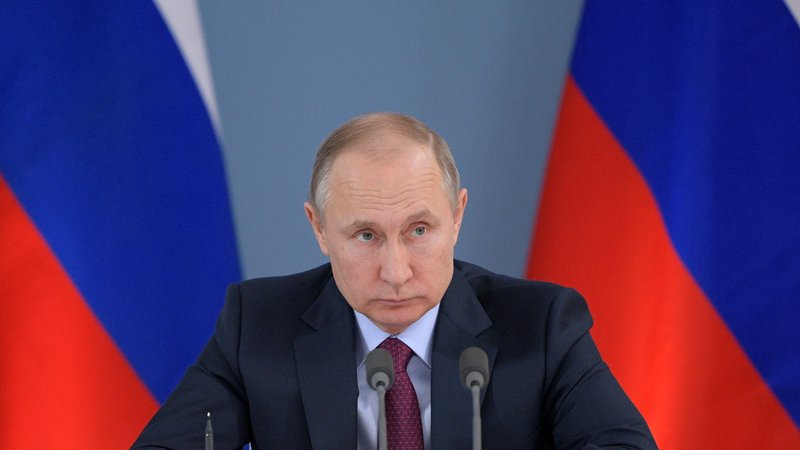UK spy poisoning: a counterpoint
April 5, 2018 | Expert Insights

The recent attack on a Russian spy in the UK resulted in heightened diplomatic tensions between Russia and the West. Chemical weapons watchdog OPCW is now set to investigate the issue. On Wednesday, Russia was denied the chance to participate in the OPCW investigation. Moscow has taken every opportunity to refute allegations that it was involved in the incident.
Background
The Organisation for the Prohibition of Chemical Weapons is the implementing body of the 1997 Chemical Weapons Convention (CWC). The CWC ensures the destruction of existing chemical weapons, prevents the creation of new weapons, and assists states in addressing chemical threats.
In March 2018, Sergei Viktorovich Skripal, a former Russian military intelligence officer turned spy for Britain′s intelligence services, was attacked. He and his daughter were found unconscious after falling victims to what was subsequently revealed to be a chemical nerve agent called Novichok. Skripal and his daughter, Yulia were both were hospitalized, critically ill. In addition, three police officers who responded to the crime scene also required treatment for breathing difficulties.
Novichok, meaning “newcomer” is Russian, are a group of nerve agents developed by the Soviet Union in the 1970s and 1980s. It is reportedly more toxic and harder to identify than both sarin and the VX nerve agent used to murder Kim Jong-un’s half-brother last year.
The spy poisoning incident was followed by a diplomatic falling-out. UK Prime Minister Theresa May stated that the nerve agent originated in Russia, and that it is “highly likely” that the Kremlin was behind the attack. As a consequence, UK, US and a number of allies expelled over a 100 Russian diplomats who had supposed intelligence links, from their soil. Russia retaliated by expelling an equal number of US and UK diplomats.
Analysis
British officials have stated their belief that the attack could only have been carried out by someone with training with Novichok. Boris Johnson, the British foreign secretary, claimed in an interview last month that the Porton Down laboratory had identified Russia as the source of the nerve agent.
However, Gary Aitkenhead, the chief executive of Porton Down said on Tuesday that the agency had not identified the “precise source” of the agent. It confirmed that the nerve agent was military grade Novichok, but that it was “not our job to say where it was manufactured.” "We have provided the scientific information to the government, who have then used a number of other sources to piece together the conclusions you have come to," Aitkenhead said.
On Wednesday, the OPCW held an emergency meeting in The Hague, called by Russia. Moscow argued that Russian scientists should be allowed to participate in the OPCW investigation. UK representative John Rollo called Russia’s attempt to join the investigation “perverse”. Russia’s request was denied after a 15-6 vote. Russia was backed by China, Azerbaijan, Sudan, Algeria and Iran.
The UK told the OPCW that their accusation was based on the type of nerve agent used and that Russia "has produced this agent and remains capable of doing so". They noted Russia’s history of state sponsored assassinations. The EU backed the UK.
Counterpoint
Russia has maintained its innocence and insists that it has destroyed its stock of chemical weapons. Failure to attribute the nerve agent to Russia has raised questions about whether the UK was too quick to point fingers at Moscow. The UK Russian Embassy pointed out a tweet from the Foreign Office published on March 22nd claiming that Porton Down lab had “established that the source of Salisbury toxic agent was Russia”. The embassy noted that the lab only identified the type of agent used, and not the source country.
Russia has launched a strategy of what Mathieu Boulègue from the think tank Chatham House called “soft power with a Russian twist.” Russian officials have called the nerve agent charges “mad” and described the event as a “circus show”. According to reports, Russia has spread a number of conflicting theories regarding the incident spread in an attempt to divest blame.
For example, on Monday, Russian Foreign Minister Sergei Lavrov, claimed that the British government itself may be responsible for attacks in order to distract its citizens from Brexit. He accused the West of playing “children's games”, "disregarding all accepted behaviour" and using "open lies and disinformation". Lavrov also countered the argument that the sophisticated nature of the attacks implied Russian involvement. “If I understand correctly, sophisticated attacks usually lead to instant death,” he said.
President Putin has stated that he was "surprised at the speed with which the anti-Russian campaign was promoted and accelerated." Intelligence chief Sergei Naryshkin has claimed that the US and UK “concocted” the Skripal case. On Thursday, Russia called for a meeting with the UN Security Council regarding the issue.
Assessment
Our assessment is that Russia will continue to refute allegations that it was involved in the chemical attack. The country has previously opposed investigation into the use of chemical weapons against civilians in Syria. The UK has been unable to cite credible sources for its allegations thus far. This has allowed Russia to discredit arguments and unearth inconsistencies. If the OPCW confirms that the agent used was Novichok, it may help substantiate the UK’s claims. We believe that the international community will most likely decline hard action against Russia unless it is proved guilty of the attack.
Read more: Kremlin linked to UK spy attack?








Comments